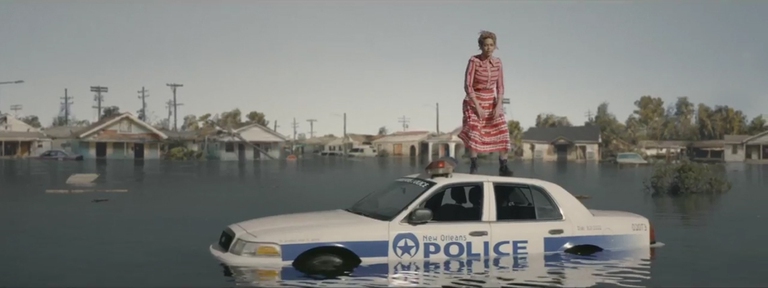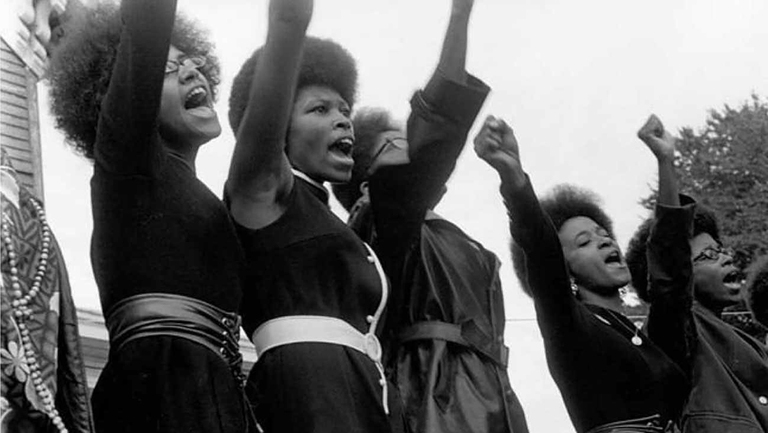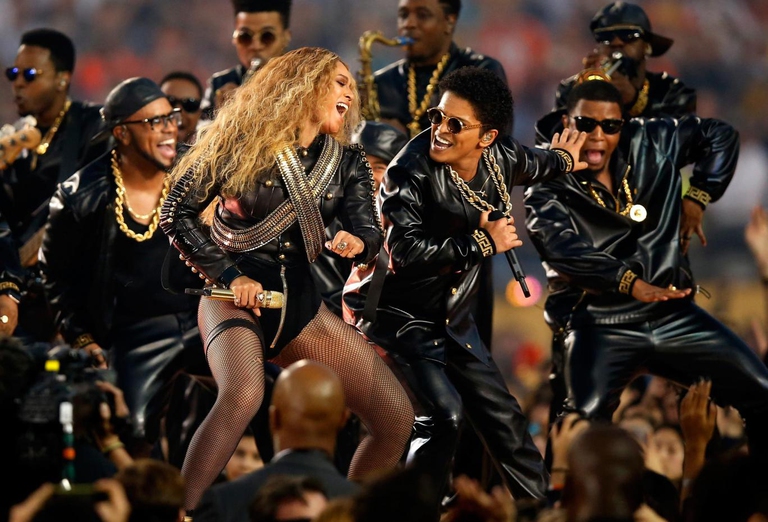
Even Cinema can reduce its ecological footprint, both in technical operations and in storytelling. TorinoFilmLab shows how.
Beyoncé’s latest video, Formation, and her show at the Super Bowl evoke the Black Panthers and have fuelled arguments about racism in the United States.
Beyoncé’s newest “political” video, Formation, and her provocative performance at the Super Bowl 50, have fired black rights activists with enthusiasm but also fuelled right-wingers’ arguments.
The video is set in Louisiana – the place where once African slaves were deported – where the hurricane Katrina has had dramatic consequences. The clip celebrates the role black women played in social justice movements like Black Lives Matter and recalls the increasingly frequent killings of black citizens. In the final scene, Beyoncé symbolically sinks a police car.
The video message echoed during the halftime show of the Super Bowl final, when Beyoncé sang Formation in front of 70,000 spectators. She performed with dancers in an X formation (an apparent tribute to Malcom X) who evoked the Black Panthers, a political (occasionally armed) movement of black people who fought against the government for self-defense in the ‘60s, and held a sign demanding “Justice for Mario Woods”, a coloured man who was killed last year.
The performance stirred immediate controversy in the media and among right-wingers. Some Fox reporters accused the pop icon of racism and hate speech against the police, comparing her performance to the KKK. Former New York mayor Rudy Giuliani said that “it was really outrageous that she used the platform to attack police officers, the people who protect her and protect us to keep us alive”. An anti-Beyoncé protest rally has also been planned outside the NFL headquarters.
According to the most critical Liberals, Queen Bey’s performance at the 2014 VMAs (the same year as she appeared on the cover of the Time as one of world’s top 100 most influential people) shouldn’t be considered a masterpiece of feminism. Her recent activist turn through the song Formation is interpreted as a consumerist strategy inspired in the race issue rather than a real action to raise people’s awareness.
Basically, besides celebrating negritude, Formation was specifically written to make profit (the demand for the tickets of her new tour has increased sharply), and it is addressed to that share of audience inclined to invest its money and political thoughts in a celebrity. Ironically, these are the same accuses against capitalism that the Black Panthers Party fought against. According to them, capitalism, indeed, perpetuated a system that oppressed and used the black culture.
Whether the artist’s moves are really good or not, celebrities such as Beyoncé and others, the CNN says, do well to show that fame can and should be used to push for social justice.
Siamo anche su WhatsApp. Segui il canale ufficiale LifeGate per restare aggiornata, aggiornato sulle ultime notizie e sulle nostre attività.
![]()
Quest'opera è distribuita con Licenza Creative Commons Attribuzione - Non commerciale - Non opere derivate 4.0 Internazionale.
Even Cinema can reduce its ecological footprint, both in technical operations and in storytelling. TorinoFilmLab shows how.
Kyoto’s premier photography festival, Kyotographie, grows in stature with the launch of a new music festival, Kyotophonie, held in the spring and autumn.
The small state of Mizoram in northeast India has a thriving handicraft industry, with artisans making a living by selling products made from bamboo.
Many British cultural institutions have ended their relationship with oil giant BP in recent years, thanks to pressure from activists and the public.
Communities across India are celebrating Durga Puja, a festival that stands as an example of the communal unity which is under threat in the country .
Through stories of encounters between humans and animals, Our Wild Calling offers a way out of an age of solitude. We speak to author Richard Louv.
Survival, multiculturalism, plastic islands. Musician Grey Filastine recounts his adventure aboard the Arka Kinari, which set sail in 2019 and spent much of last year adrift in the Pacific because of the pandemic.
Chinese filmmaker Chloé Zhao made history, becoming the first Asian woman to win an Academy Award as well as a Golden Globe for Best Director for Nomadland.
A list of some of the best films on ethical and sustainable fashion shown at past editions of the Milan Fashion Film Festival.










